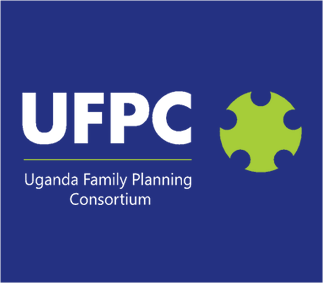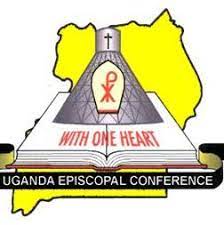Birth control: What religious leaders say


A woman displays a strip of contraceptives.
The third Uganda National Family Planning Conference was held in Kampala on Thursday and Friday. The conference, organised by the Ministry of Health, ran under the theme ‘Family Planning for Social Economic Transformation: Empowering Communities’.
The dominant opinion at the conference was that the estimated 1.6 million babies born in Uganda every year is high and places immense burden on the resources of families and communities. Birth control, in particular the use of contraceptives, has been encouraged by the government and other organisations, but some religious groups oppose the idea.
Mr Sulaiman Walugendo is a Muslim cleric, who has been teaching Islam for decades. In 2000, his wife (name withheld on request) started accessing family planning services stealthily.
Unluckily, she started bleeding shortly after the procedure. Mr Walugendo interpreted the Muslim beliefs that children are gifts from God, the reason he condemned contraceptive use to space children. But his wife thought differently.
Although he, up to now, refrains from revealing the number of children and wives he has, the incident changed his opinion about family planning.
“Family planning exists in Islam and we are encouraged to space using natural methods of abstaining and the woman breastfeeding continuously, but now the time is changing,” he says.
From the incident, the resident of Muyenga Cell in Bugiri District, imagined the number of girls and women who end up dealing with unprofessional people in their search for contraceptives and abortion, leading to many preventable deaths.
“You see that the girls and boys are involving in sex and we will be faced with a challenge of seeing our young girls and women die or seeing them get married early, which is also dangerous. So, like us, we should encourage them to use the contraceptive tools,” Mr Walugendo adds.
He is not the only religious elder who has since changed his belief towards the use of modern contraceptives, including female and male sterilisation, oral hormonal pills, the intra-uterine device (IUD), the male condom, and injectables, among others.
A number of other religious leaders from different denominations have joined hands with non-government organisations through their faith-based organisations to advocate and create awareness about contraceptives as a family planning tool.
These, through an organisation, Faith for Family Health Initiative (3FHi), a faith-based organisation working to strengthen inter-faith collaboration for better family health and wellbeing, say they have included the message in their sermons because it is the only way they can ensure quality life for their congregates.
Sheikh Muhammad Ali Waiswa, the second Deputy Mufti of Uganda (Uganda Muslim Supreme Council), says the family planning issue was a very contentious one from the very beginning because the perceptions were quite not clear since “they encouraged moral decadence.”
“As you know, the family planning movement used not to bother whether those who are employing the tools really follow the morals or not. Their aim was only to prevent birth, but these were cleared in the long run and people understand them very well because whether condoms, they are only used where nothing else can work,” Sheikh Waiswa says.
The teenagers, Sheikh Waiswa says, are potential victims of early pregnancy and these pregnancies lead to high school dropout, the reason there is need to target the youth because they sometimes get involved accidentally.
“We are in a secular society that doesn’t look at those issues as we look at them religiously. So you find that most of the youth are not necessarily immoral, but they confront such challenges unwillingly. So that is why we ask them to have knowledge of this so they don’t get affected in whatever that would happen to them, but not to encourage them to go into these immoral kind of things before their legal engagement,” Sheikh Waiswa adds.
The newly elected Church of Uganda Archbishop Stephen Kaziimba Mugalu recommends the use of both natural and modern family planning methods because “it is God who guided mankind to come up with those preventions to help women prepare or plan very well.”
“I want to call upon other religious leaders to read the scriptures very well that we may not agree with the modern methods, but you can invite people and teach about natural methods. You need to listen to others to see how you can save lives,” Archbishop Kaziimba says.
He adds that lack of contraceptive awareness among young people, especially girls, has led to many unsafe abortions and the subsequent maternal mortality, hence the need to face the reality.
Mr Walugendo shares Archbishop Kaziimba’s opinion about the relationship between family planning and maternal and infant deaths. Although his wife managed to recover from the aftermath side effects of a contraceptive gone bad, Mr Walugendo says she cannot sustain pregnancy any more.
“Since then, she gets miscarriages whenever she conceives,” Mr Walugendo says.
Rigid
However, Catholic Church leaders are yet to adjust like their counterparts, insisting that if there are well-grounded reasons for spacing births, the Catholic Church teaches that married people may take advantage of the natural cycles immanent in the reproductive system and engage in marital intercourse only during those days when they are infertile.
Dr Cyprian Kizito Lwanga, the Roman Catholic Archbishop of Kampala, argues that the Catholic Church is concerned that contraceptives have several severe complications that affect women, they have promoted promiscuity, and have taught many to dissociate the conjugal act from marital commitment and from procreation.
“Many of the contraceptives also have potential of acting through killing very young embryos (abortifacients) that the users do not even get to know that they aborted, among others,” Archbishop Lwanga says.
He adds that for the couple with a noble desire to avoid pregnancy, there is nothing blameworthy in waiting patiently for the natural time of infertility, and even rejoicing that God has granted a time of infertility.
“But it would be quite another thing for the couple to take the powers of life into their own hands and render themselves sterile because they cannot bear the suffering of abstinence,” Archbishop Lwanga says.
“Finally, people should never be forced to limit their family size, it is a decision that should be left to the parents to decide, it is their fundamental right,” he emphasises.
Earlier view
For a long time now, religious leaders have been at loggerhead with the Health ministry over the promotion of contraceptive use, especially among teenagers and school going children, arguing that it raises moral questions
Both the church and the Muslim clerics say hormonal methods (modern contraceptives) put a stop on the purpose of sex, yet sex is supposed to be open to life, as well as encourage sex before marriage, contrary to the church teaching.
The Church believes that the primary purpose for sex is procreation, while the Muslims on the other hand, believe all children are gifts from God.
Similarly, both the Church of Uganda and the Catholic Medical Bureaus controlled hospitals, as well as health facilities affiliated to them, do not offer modern contraceptive commodities.
However, the faith-based health facilities have of late softened their stance and started offering information on natural family planning methods, where a woman is taught how to be aware of her fertility by “listening” to her body.
The fertility awareness methods include; lactation amenorrhea method (LAM), which relies on exclusive breastfeeding for six months, the two-day method involves a women checking the consistency of her virginal discharge as an indicator of fertility.
The other is cycle beads, which can only be used by women who have regular menstrual cycles.
Statistics
Pregnancies: A study carried out between June and November 2013 by Makerere University School of Public Health and the Guttmacher Institute showed that of the 2.3 million women who got pregnant in 2013 in Uganda, 386,000 were adolescents aged between 15 and 19 years, and an estimated 57,000 of these pregnancies were aborted.
Abortion: Abortion refers to the deliberate termination of the growing human pregnancy, most often performed during the first 28 weeks.
Deaths: Each year, between 4.7 per cent and 13.2 per cent of maternal deaths are attributed to unsafe abortion worldwide, according to the World Health Organisation (WHO).
Packaging: Ms Jackie Katana, the chairperson of the board of 3FHi, says family planning should be part of the package that clergies give to the congregations as a move to improve their wellbeing by reducing the dependence levels.
Advocacy: “It is a diplomatic way of advocacy without carrying placards and raising voices so that other religious leaders are involved without being misunderstood,” Ms Katana states.























